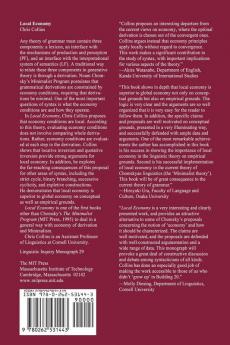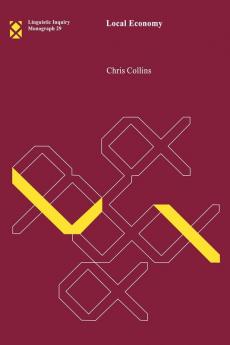English
Paperback
₹3252
₹3960
17.88% OFF
(All inclusive*)
Delivery Options
Please enter pincode to check delivery time.
*COD & Shipping Charges may apply on certain items.
Review final details at checkout.
Looking to place a bulk order? SUBMIT DETAILS
About The Book
Description
Author
Any theory of grammar must contain a lexicon an interface with the mechanisms of production and perception (PF) and an interface with the interpretational system of semantics (LF). A traditional way to relate these three components in generative theory is through a derivation. Noam Chomsky's Minimalist Program postulates that grammatical derivations are constrained by economy conditions requiring that derivations be minimal. One of the most important questions of syntax is what the economy conditions are and how they operate. In<i> Local Economy</i> Chris Collins proposes that economy conditions are local. According to this theory evaluating economy conditions does not involve comparing whole derivations. Rather economy conditions are evaluated at each step in the derivation. Collins shows that locative inversion and quotative inversion provide strong arguments for local economy. In addition he explores the far-reaching consequences of this proposal for other areas of syntax including the strict cycle binary branching successive cyclicity and expletive constructions. He demonstrates that local economy is superior to global economy on conceptual as well as empirical grounds.<i> Local Economy</i> is one of the first books other than Chomsky's The Minimalist Program (MIT 1995) to deal in a general way with economy of derivation and Minimalism. Linguistic Inquiry Monograph No. 29
Delivery Options
Please enter pincode to check delivery time.
*COD & Shipping Charges may apply on certain items.
Review final details at checkout.
Details
ISBN 13
9780262531443
Publication Date
-15-10-1996
Pages
-162
Weight
-229 grams
Dimensions
-152x229x8.8 mm











